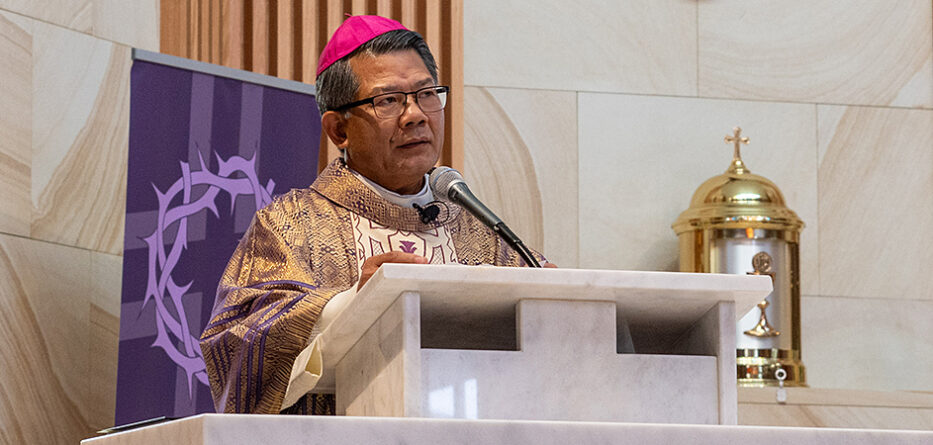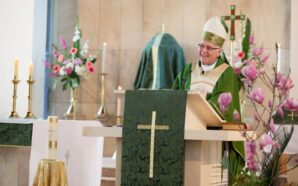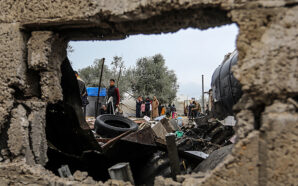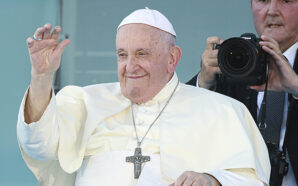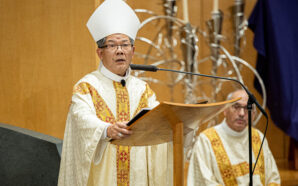Most Reverend Vincent Long Van Nguyen OFM Conv DD STL, Bishop of Parramatta
Homily for the First Sunday of Lent, Year B
Readings: Genesis 9:8-15; Psalm 24(25):4-6, 7b-9; 1 Peter 3:18-22; Mark 1:12-15
18 February 2024
Dreaming and enacting God’s new era of righteousness
Dear friends,
This week, amid all the hype that is associated with the Taylor Swift concert in Australia, I have been moved by the report of the death of Alexei Navalny in a Russian prison. Alexei was a young human rights activist and a critic of the Kremlin. After his treatment abroad for food poisoning, he went back and continued to campaign for truth, freedom and democracy in Russia. Formerly an atheist, he found faith and inspiration in the Gospel. After spending months in harsh gulag conditions, Alexei reportedly spoke of himself being satisfied when he referred to the Beatitude, “Blessed are those who hunger and thirst for righteousness, for they shall be satisfied.” He is widely admired for his courage and faith in action.
With the signing of the ashes on our foreheads, we have entered a special time of solitude which serves to deepen our sense of identity and vocation as followers of Christ. The Word of God which inspires prisoners of conscience like Alexei also guides us in our endeavour to live out the kingdom vision of Jesus.
The story of Noah in the first reading provides us with the model of behaviour in the time of deep crisis. The world which God had declared good had been threatened by humanity’s violence and corruption. Noah was called to be a partner with God in renewing and sustaining the good creation. He is the prototype of God’s righteous who offers a model of human conduct that makes God’s unfolding plan possible. He is a true leader who acts decisively and prophetically while everyone else is oblivious to the signs of the times. His faithful response like that of Abraham was a catalyst for a new future.
Even though the story begins with destruction, it ends with a promise of blessing and a new covenant. God resolves that he will stay with, endure and sustain the world notwithstanding mankind’s penchant for corruption. God seals the covenant with a rainbow, metaphorically a divine signature that He will not abandon His creation. We are summoned through Noah to fulfil our end of the bargain. Just as Noah began to nurture a new remnant community aligned with God’s purpose, we are called to be catalysts for the kingdom vision of Jesus to flourish in the midst of the moral, environmental and cultural malaise. For we are summoned to be the custodians and enablers of God’s life-giving dream.
The Gospel tells us that Jesus was driven out into the wilderness where he was tempted by Satan. This Hebrew word does not mean a personal name but a common name. Satan is the personification of all the forces of evil against which Jesus fought. Satan presents himself to us today in the impulses of hatred, selfishness, greed and the desire to dominate and possess. These are the forces against which we are called to confront, as Jesus did, with the power of the Spirit.
The evangelist also speaks of the wild beasts which could be interpreted as a metaphor for the holders of worldly powers that enslave and dehumanise people. Jesus confronted during his lifetime the rulers of this world, including the political, economic and religious leaders who devoured the widows’ goods. He defended people and freed them from the clutches of institutions which, instead of serving, tyrannised them. The evangelist wants to warn us that we will have something to do with the same beasts: the economic systems that take advantage of the poor, the political powers that benefit a few or the ideologies that induce people to fanaticism, religious fundamentalism and racism.
Finally, Mark tells us that Jesus went into Galilee to preach the Good News to the poor masses at the periphery. He had a message of joy for all the outcasts of the earth: the new era of history had begun. In announcing the nearness of the kingdom of God, Jesus has awakened in many ancient, dormant hopes; in others distrust, open hostility to those in power. He envisioned a radically new society, based on principles opposed to those which, until then, had characterised the relations between people. It is no longer domination, but service; not selfish hoarding of goods, the pursuit of self-interest and the race to the top, but the choice to share everything so that no one would be poor; not revenge and implacable justice of people, but forgiveness and unconditional love for the enemy.
Dear brothers and sisters,
We are the custodians and the protagonists of the Good News and of the vision of the new world that Jesus preached. We are what remains of the alternative Gospel community of the Jesus movement or the Church of the baptised that St Paul refers to in the second reading. Let us show by our faith in action the words we heard on Ash Wednesday, “Repent and believe in the Gospel”. Let us pray that we have the courage to make the right choices and enact the values that strengthen our relationship with God and one another. May we become the model community where fraternity, solidarity, harmony and the flourishing of the good creation are the hallmarks of the divine plan.




